Les enfants et adolescents issus de milieux modestes souffrent davantage de déséquilibres alimentaires. Pour y remédier, plusieurs initiatives tentent de s’immiscer au sein des collèges pour apprendre aux jeunes à cuisiner sous la forme d’ateliers pratiques.
Abd-el-Majid coupe une courgette, Salma détaille un potiron et Lina émince un oignon. Mais attention, pas n’importe comment. Ces élèves de cinquième scolarisés au collège des Grands Champs à Poissy (Yvelines) ont pour première consigne de réaliser une brunoise de légumes – c’est-à-dire de les tailler en petits dés.
En ce mercredi après-midi de novembre, ils sont quatorze collégiens à avoir volontairement troqué activités sportives, culturelles et autres parties de jeux vidéo pour cuisiner. Leur établissement bénéficie, en effet, comme une petite dizaine de collèges en Réseau d’éducation prioritaire renforcé (REP +), du programme des Brigades culinaires proposé par l’association La Tablée des chefs. Cela leur permet de participer à dix ateliers cuisine répartis sur l’année et animés par des chefs bénévoles. Et ainsi de s’approprier peu à peu leur alimentation et donc leur santé. Car, comme bien d’autres domaines, la nourriture souffre des inégalités sociales puisqu’un enfant d’ouvriers sur quatre s’avère en surcharge pondérale contre un peu plus d’un sur dix chez les filles et fils de cadres.
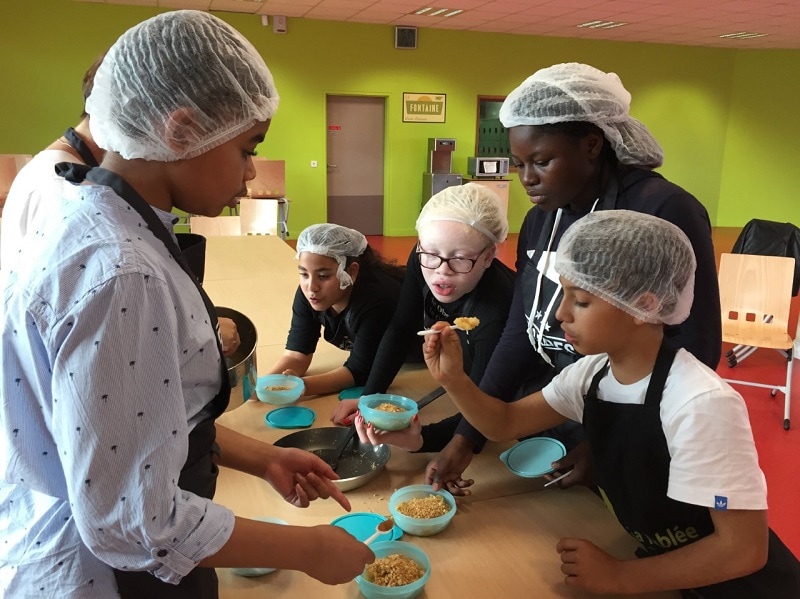
« La ‘’bonne santé’’ ne doit pas être le privilège de quelques-uns, mais une chance pour tous », avait pourtant déclaré le Premier ministre Edouard Philippe en mars 2019, dans le cadre du deuxième comité interministériel pour la santé. A cette occasion, le gouvernement a annoncé vouloir réduire l’obésité chez les adultes de 15 % et de 20 % chez les enfants et adolescents d’ici 2023.
Une des mesures avancées pour y parvenir consiste à « étendre l’éducation à l’alimentation de la maternelle au lycée ». Or ces disparités s’expliquent davantage par des différences liées aux habitudes qu’aux moyens financiers ou manques de connaissances. D’où la multiplication des initiatives pour apprendre à cuisinier en milieux scolaire et périscolaire qui manquent toutefois de coordination – au niveau local, voire national.
Mauvaise perception des messages nutritionnels
« Selon le milieu social, le rapport aux messages nutritionnels, est très, très différent, constate Aurélie Maurice, spécialiste des sciences de l’éducation au sein du Laboratoire éducations et pratiques de santé. Il faut bien comprendre que toutes ces recommandations viennent d’un certain groupe social qui entretient un rapport préventif à la santé et en fait son premier objectif. Ce qui n’est pas le cas pour tout le monde. Si on se pose la question de comment finir le mois, on n’a pas du tout la même temporalité ni le même rapport aux enfants. Pour parler des cas extrêmes, ceux qui ont vécu la famine dans leur pays vont avant tout s’assurer que leurs enfants ne manquent de rien… », précise la chercheuse, notant aussi le rejet que suscite, chez certain.e.s pères et mères, la dimension culpabilisante des messages délivrés par le Haut conseil de la santé publique via son Plan national nutrition santé.
Pour illustrer ses propos, Aurélie Maurice cite le projet « Flam (Fruits et légumes à la maison) » mené en 2016 à Saint-Denis à l’initiative du ministère de la santé. Une centaine de familles défavorisées s’étaient vu attribuer des bons d’achat dédiés aux fruits et légumes. Cette expérience visait à déterminer si la seule levée du frein économique suffisait à augmenter la consommation de végétaux frais au sein de ces ménages. Ce qui n’a pas été le cas. « Certains n’achetaient que des jus de fruits ou continuaient à acheter les aliments qu’ils consommaient d’habitude pour se libérer du budget au bénéfice des produits de marque qu’ils ne pouvaient pas s’offrir en temps normal », a observé la chercheuse.
Enfants et adolescents issus de familles peu perméables aux recommandations nutritionnelles se retrouvent, de fait, confrontés à d’importantes inégalités qui influent directement sur leur santé. Physique mais aussi mentale. Guillaume Ferreira, directeur de recherche « nutrition et cerveau » à l’Institut national de la recherche agronomique (Inra), estime ainsi que l’excès de consommation à la fois de sucre et de gras chez les jeunes, âgés de 5 à 20 ans, altère le développement de leur cerveau et de leur mémoire. Ce lien s’avère confirmé par la chercheuse australienne Margaret Morris dans le documentaire « Bien nourrir son cerveau » diffusé sur Arte :
Rendre le jeune acteur
Sensibiliser directement les plus jeunes, et donc les plus vulnérables, apparaît donc indispensable. Encore faut-il que ce soit efficace. Contrairement, par exemple, aux Classes du goût, dont Catherine Arriudarré, diététicienne et présidente de l’association Caralim (Centre aquitain rééeducation alimentaire), dénonce le « flop ». Instauré en 2010, ce dispositif censé faire « (re)découvrir les alimentations par le goût mais aussi par le nez, le toucher, l’ouïe et la vue » aux élèves des écoles élémentaires a eu le tort, selon celle qui l’a animé, d’ambitionner de « faire aimer les fruits et les légumes aux enfants en cinq ateliers. Ça n’a pas très bien marché. Ce type de démarches doit être accompagné, suivi dans le temps… »
Elles doivent surtout rendre le jeune acteur de son alimentation. « Il faut voir comment, en se servant des programmes scolaires, on peut sortir du ‘’tout connaissance’’. Car l’alimentation passe aussi par les émotions, le vécu, le partage. C’est peut-être cette dimension qu’il manque », poursuit Catherine Arriudarré.
Proposer des ateliers cuisine constitue ainsi « une clé », d’après la chercheuse en sciences de l’éducation Aurélie Maurice qui juge, elle aussi, cela plus pertinent que « de vouloir augmenter les connaissances » – la multiplication des recommandations nutritionnelles à destination des jeunes ayant même, toujours selon elle, tendance à favoriser les troubles du comportement alimentaire.
En tant que chercheuse en comportement du jeune consommateur, Emilie Orliange prône également la cuisine à l’école et plus particulièrement au collège. « C’est la période où le jeune commence à s’autonomiser sur les pratiques culinaires, à mettre la main à la pâte tout seul et donc où on peut lui inculquer un certain nombre de réflexes et d’habitudes sur la cuisine de produits de saison, bruts, locaux… », explique-t-elle, persuadée toutefois qu’il demeure possible d’introduire l’éducation alimentaire plus tôt.
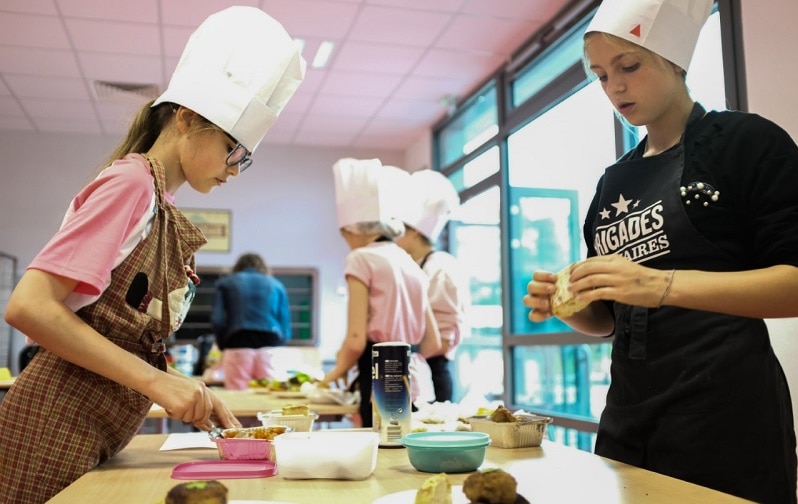
S’intégrer aux programmes scolaires
En 2013, Emilie Orliange a participé au lancement du programme Arts de faire culinaires au collège (AFCC), co-piloté par l’association CENA (Club Expert Nutrition Alimentation), qu’elle a choisi de tester dans un établissement classé REP+, comme le collège de Poissy, et donc accueillant une majorité d’élèves issus de familles modestes. « Puisqu’on s’est rendu compte que toutes les campagnes d’informations ne suffisent pas à changer les pratiques alimentaires, nous avons proposé une alternative à l’éducation nutritionnelle classique qui se contente de transmettre des informations, détaille la chercheuse. Nous avons essayé de valoriser ces populations par rapport à leur savoir-faire culinaire à elles. »
Si AFCC s’intègre aux programmes scolaires en associant les différentes matières au projet, les parents ne sont pas oubliés et invités, au moins deux fois par an, à prendre part à des événements conviviaux où chacun apporte une spécialité culinaire. « L’enfant peut certes devenir vecteur de messages de prévention mais dans une démarche de promotion de la santé, il faut impliquer tout le monde. Les parents s’avèrent une partie prenante importante car ce sont eux qui tiennent les cordons de la bourse ! », insiste d’ailleurs Emmanuelle Godeau, responsable de la formation des médecins de l’éducation nationale à l’École des hautes études en santé publique.
Soutenus par les ministères de l’éducation et de l’agriculture, les cinq ateliers par an imaginés par Emilie Orliange en lien avec les équipes éducatives prévoient de s’étendre à sept régions d’ici 2022 tandis que « l’objectif ultime est de les proposer à tous les collèges en l’intégrant au programme obligatoire. »
Or, si les chercheurs et acteurs de terrain semblent unanimement reconnaître l’intérêt de ces cours de cuisine, certains préfèrent qu’ils demeurent facultatifs. « Notre but final serait de les réintroduire [de manière systématique] sur les temps périscolaires, mais il ne faut pas que ça devienne une obligation au risque de perdre la notion de plaisir », affirme par exemple Laure Anidjar, la directrice commerciale de l’association Les enfants cuisinent qui intervient aussi en milieu scolaire.
Manque de cohérence
Toujours est-il qu’une meilleure coordination s’impose. « Il existe beaucoup d’initiatives à droite, à gauche. Ce qu’il manque c’est la cohérence et la mise en commun des projets. On est en train d’essayer de se mettre en relation mais ce n’est pas simple », constate Emilie Orliange.
Bien consciente que les obstacles se révèlent à la fois d’ordre budgétaire et logistique, la chercheuse souhaite que « dans le projet d’essaimage, ce soient les chefs des cantines scolaires qui prennent cela en charge. On va chercher à les former pour qu’ils puissent être en mesure, notamment à la suite de Plaisir à la cantine [programme impulsé par le ministère de l’agriculture et de l’alimentation en 2010, [NDLR], d’apprendre à transmettre leurs connaissances aux collégiens. A long terme, cela permettra une prise en charge en interne, évitant tout coût supplémentaire à l’établissement. Mais aussi de valoriser et de créer du lien avec les équipes de cuisine », ambitionne Emilie Orliange.
De son côté, la cheffe Virginie Legrand, qui intervient au collège de Poissy, milite pour « un projet vraiment fédérateur impulsé par l’Education nationale ». Ravie de transmettre sa passion, elle constate, ce mercredi après-midi encore, « beaucoup de lacunes » chez certains collégiens qui confondent par exemple courgette et concombre.
Mais pour la responsable de la formation des médecins de l’éducation nationale, Emmanuelle Godeau, une simple généralisation ne suffit pas. « Il n’y a pas de recette magique qui pourrait correspondre à toutes écoles, prévient-elle. Le rôle de l’alimentation dans les inégalités de santé étant avéré, la question de la mise en place de ces ateliers se pose partout. La réponse doit être adaptée à chaque établissement. Il faut donc des instructions du gouvernement en ce sens, qui restent cependant suffisamment larges pour que chaque école ou collège se les approprie », résume-t-elle, préconisant entre autres d’élargir ce dispositif à des rencontres entre jeunes scolarisés en milieu rural et agriculteurs.
Sauce maison
En attendant, les collèges pilotes se réjouissent d’ores et déjà de constater des changements chez les élèves suivant ces cours. « On observe une montée en compétences culinaires des collégiens et un gain en autonomie dans la mesure où 45 % d’entre eux sont devenus capables de cuisiner des plats principaux avec plusieurs modes de cuisson. Ils ont aussi conscience de se montrer plus prudents sur la lecture des étiquettes et moins candides par rapport au marketing alimentaire », affirme la chercheuse Emilie Orliange qui a suivi une cohorte d’élèves du collège Marguerite de Valois à Angoulême (Charente) ayant participé pendant trois ans au programme AFCC.
A Poissy, de nombreux collégiens ont reproduit chez eux les recettes apprises avec la cheffe Virginie Legrand. Rodrigo, 13 ans, a fait goûter à ses parents un dessert aux fruits de saison et yaourt grec. Hafsa, 12 ans, a, elle, renouvelé l’expérience des pâtes à la sauce tomate maison. « C’est moi qui ai fait la sauce. Alors qu’avant on l’achetait toute faite. C’était meilleur. », assure-t-elle.
A quelques mètres, dans la cuisine mise à disposition par le collège des Grands Champs, Salma recouvre la brunoise de courgettes et potiron de pâte sableuse à base de farine, beurre, parmesan et poudre d’amandes avant d’enfourner le crumble aux légumes. « Ça donne déjà envie de manger ! », salive l’adolescente.
Autant de petites victoires pour Virginie Legrand et l’association La Tablée des chefs puisque la cuisine maison permet non seulement d’éviter les additifs présents dans près de huit produits transformés sur dix. Mais aussi de protéger la santé des jeunes quand la consommation d’aliments ultra transformés augmente de 26 % le risque de surpoids ou d’obésité.

Photo d’entête : Tablée des chefs avec Gérard Cagna – Photo Jean-Claude Guilloux

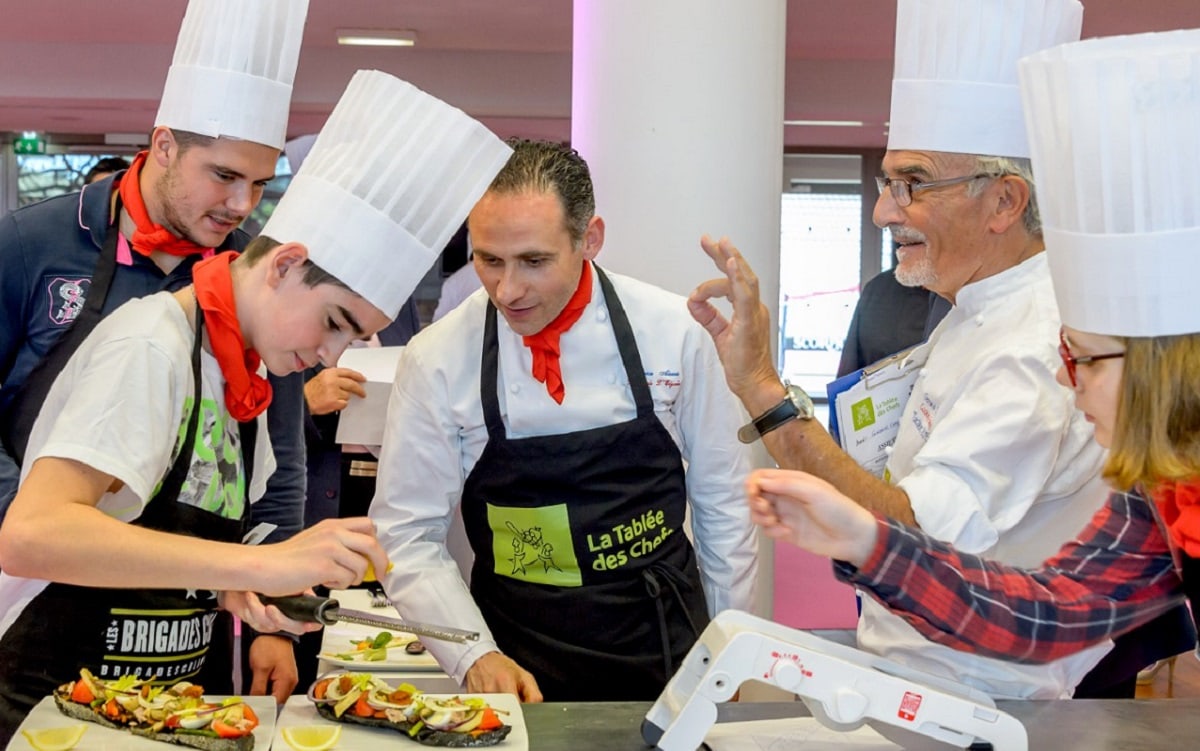

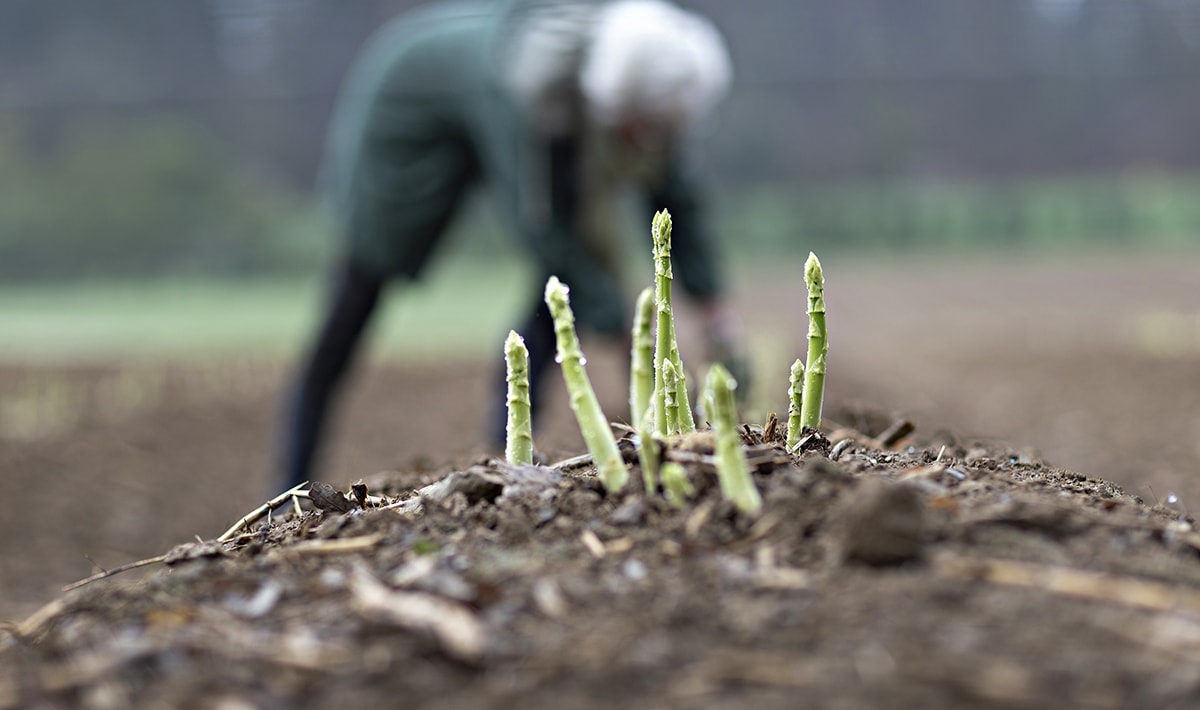
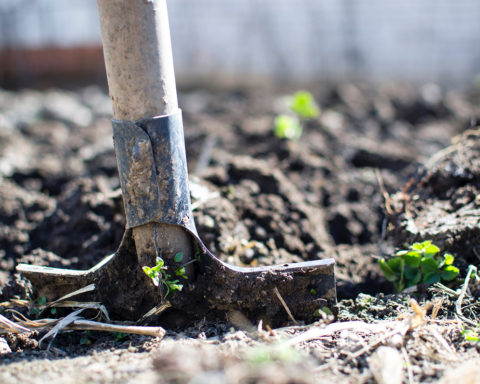
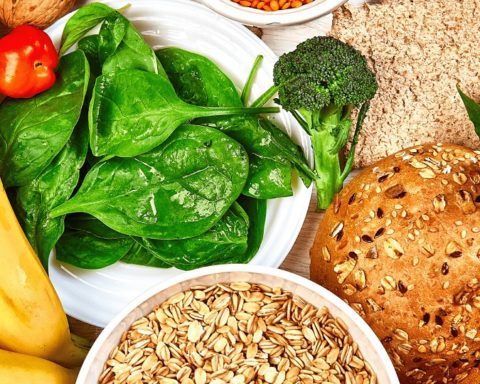







Pour plus de renseignements sur le programme de recherche et d’éducation à l’alimentation par la cuisine AFCC « Arts de Faire Culinaires au Collège », rendez-vous sur le site du projet pilote: https://www.projet-alimentation-arts-de-faire-culinaires-au-college.fr/, sur le site de la recherche-action: https://eorliange.wixsite.com/emilieorliange et sur le site Proj’Educ Lab: https://www.projeduc-lab.fr/
A votre disposition.
Emilie Orliange
Chercheuse à l’Université de Poitiers
Chargée de projets et Formatrice Indépendante
Consultante en méthodologie de projets
Tel: 06-74-58-33-87
Mail: emilie.orliange@projeduc-lab.fr